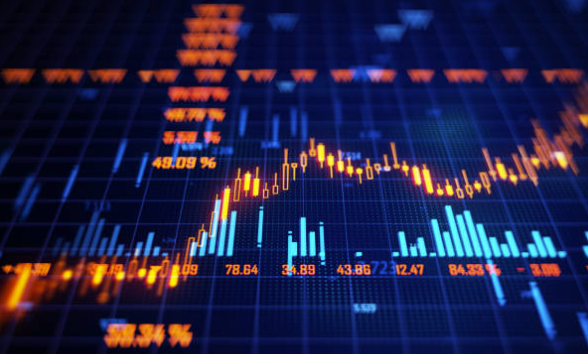Forex vs Stocks vs Commodities: Which Market is Best for You?
Choosing the right market to trade can feel overwhelming, especially when you’re just starting out. With so many options available, it’s essential to understand the nuances of each market to find the one that aligns with your goals, risk tolerance, and personality. In this guide, we’ll explore the three most popular markets—Forex, Stocks, and Commodities—and break down their unique characteristics, advantages, and challenges. By the end, you’ll have a clearer picture of which market suits you best.
What Are Forex, Stocks, and Commodities?
Before diving into the comparisons, let’s define each market to set the stage for a deeper discussion.
Forex (Foreign Exchange)
The Forex market is the largest and most liquid financial market in the world, with a staggering daily trading volume exceeding $6 trillion. It’s where currencies are traded in pairs, such as EUR/USD or GBP/JPY, and traders aim to profit from fluctuations in exchange rates.
What makes Forex unique is its 24/5 availability, meaning you can trade almost anytime, day or night. This flexibility is ideal for those who want to trade around their schedule. Additionally, Forex offers high leverage, allowing traders to control larger positions with relatively small amounts of capital. However, this also means higher risk, as leverage can amplify both gains and losses.
Forex trading requires a solid understanding of global economics, geopolitical events, and central bank policies. For example, news like interest rate decisions or employment reports can cause significant price movements. If you enjoy analysing macroeconomic trends and have a high tolerance for risk, Forex might be the market for you.
Stocks
The stock market is where shares of publicly traded companies are bought and sold. When you buy a stock, you’re essentially purchasing a small piece of that company. Stock prices are influenced by a variety of factors, including company performance, industry trends, and broader economic conditions.
Stock trading is often seen as a gateway to long-term wealth building. Companies like Apple, Amazon, and Tesla have made headlines for their impressive growth, and many investors have reaped the rewards of holding their shares over time. Beyond capital appreciation, stocks can also provide dividends, which are regular payments made to shareholders from a company’s profits.
However, stock trading isn’t without its challenges. The market has limited trading hours, typically from 9:30 AM to 4:00 PM EST, and is closed on weekends and holidays. Additionally, trading high-priced stocks like Amazon or Google can require significant capital. If you’re someone who enjoys researching companies and has a patient, long-term mindset, the stock market could be a great fit.
Commodities
The commodities market involves trading raw materials like gold, oil, natural gas, and agricultural products such as wheat and coffee. These assets are often traded through futures contracts, which allow traders to speculate on price movements without owning the physical asset.
Commodities are known for their diversification benefits. For example, gold is often seen as a safe-haven asset during times of economic uncertainty, while oil prices are closely tied to global demand and geopolitical events. Trading commodities can be highly rewarding, but it also comes with significant risks. Prices can swing dramatically due to factors like weather conditions, supply chain disruptions, or political instability.
If you’re someone who enjoys analysing supply and demand dynamics and has a high tolerance for volatility, the commodities market might be worth exploring.
Key Differences Between Forex, Stocks, and Commodities
To determine which market is best for you, let’s compare them across several key factors:
Market Hours
The Forex market operates 24 hours a day, 5 days a week, making it one of the most accessible markets for traders around the globe. This flexibility is ideal for those who want to trade outside traditional business hours. In contrast, the stock market has fixed trading hours, typically from 9:30 AM to 4:00 PM EST, and is closed on weekends and holidays. Commodities markets also have specific trading hours, which vary depending on the asset and exchange. For example, crude oil futures trade nearly 24 hours a day, while agricultural commodities like wheat have more limited hours.
Liquidity
Liquidity refers to how easily an asset can be bought or sold without affecting its price. The Forex market is the most liquid, with trillions of dollars traded daily. This means you can enter and exit positions quickly, even with large trade sizes. Stock liquidity varies widely—blue-chip stocks like Apple or Microsoft are highly liquid, while small-cap stocks may have lower liquidity, making it harder to execute trades without impacting the price. Commodities like gold and oil are generally liquid, but niche commodities may have lower trading volumes, leading to wider bid-ask spreads.
Volatility
Volatility measures how much an asset’s price fluctuates over time. Forex markets can be highly volatile, especially during major economic events like interest rate announcements or geopolitical crises. Stocks also experience volatility, particularly around earnings season or when unexpected news about a company is released. Commodities are often the most volatile, as prices can swing dramatically due to factors like weather events, supply disruptions, or geopolitical tensions. If you thrive in fast-paced, unpredictable environments, Forex or commodities might appeal to you.
Capital Requirements
Forex trading typically requires less capital to start, thanks to the high leverage offered by brokers. Stocks, on the other hand, often require more capital, especially for high-priced shares like Amazon or Google. Commodities trading can also be capital-intensive, as futures contracts often involve large notional values.
Risk and Reward
Each market offers a unique risk-reward profile. Forex trading can be high-risk, high-reward due to its leverage and volatility. Stocks offer a more moderate risk-reward balance, with the potential for long-term growth and dividends. Commodities can be highly rewarding but also come with significant risks, as prices can be influenced by unpredictable factors like weather or geopolitical events.
Pros and Cons of Each Market
Forex
Forex trading is popular for its high liquidity, 24/5 availability, and low capital requirements. It’s an excellent choice for those who want flexibility and the ability to trade around the clock. However, the market’s high volatility and reliance on leverage can lead to significant losses if not managed properly. Additionally, Forex trading requires a deep understanding of global economics and geopolitical events, which can be overwhelming for beginners.
Stocks
Stock trading offers the opportunity to invest in well-known companies and benefit from long-term growth and dividends. It’s a great option for those who prefer a more stable, long-term approach to trading. However, the market’s limited trading hours and higher capital requirements can be a barrier for some traders. Additionally, stocks are vulnerable to market sentiment and economic downturns, which can lead to sudden price swings.
Commodities
Commodities trading provides diversification benefits and the potential for significant profits during price spikes. It’s an excellent choice for those who enjoy analysing supply and demand dynamics and have a high tolerance for risk. However, the market’s high volatility and capital requirements can make it challenging for beginners. Additionally, commodities prices can be influenced by unpredictable factors like weather conditions and geopolitical events, adding an extra layer of complexity.
Ready to Take Your Trading to the Next Level?
If you’re serious about mastering the markets, we recommend checking out Trendsignal. They offer an award-winning trading strategy with 1-to-1 coaching and live workshops designed to help you succeed in Forex, Stocks, or Commodities.
Don’t miss their upcoming live webinar, where you’ll learn proven strategies from industry experts.
Click here to reserve your spot in the live webinar!
Final Thoughts
Whether you choose Forex, Stocks, or Commodities, each market offers unique opportunities and challenges. The key to success lies in education, practice, and discipline. By understanding the differences between these markets and aligning them with your goals, you’ll be well on your way to becoming a confident and successful trader.
Disclaimer: Trading involves risk, and it’s important to only trade with money you can afford to lose. This article is for educational purposes only and does not constitute financial advice.





0 Comments